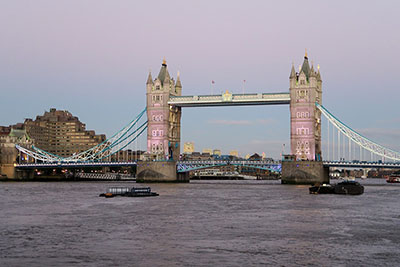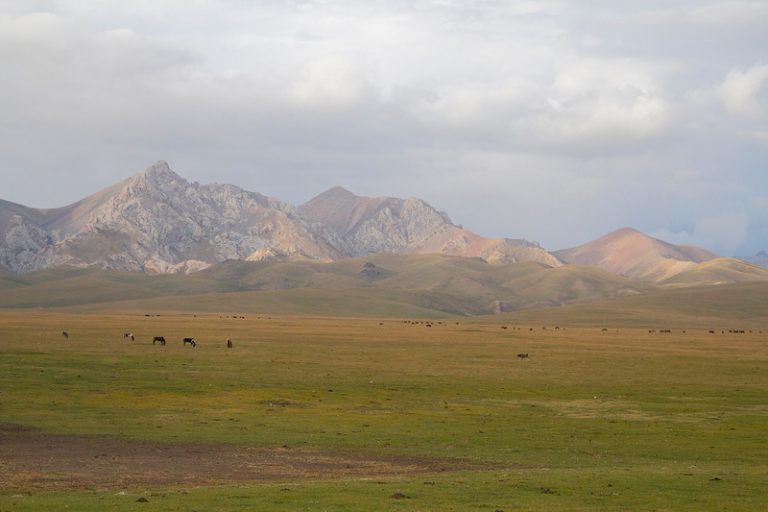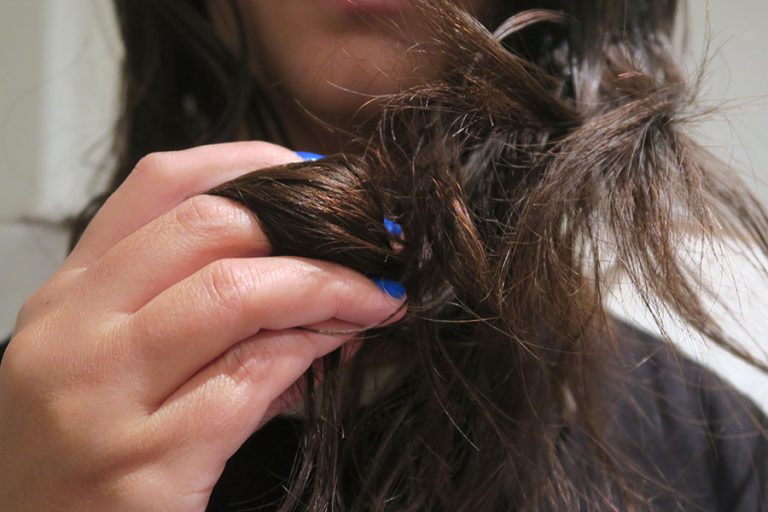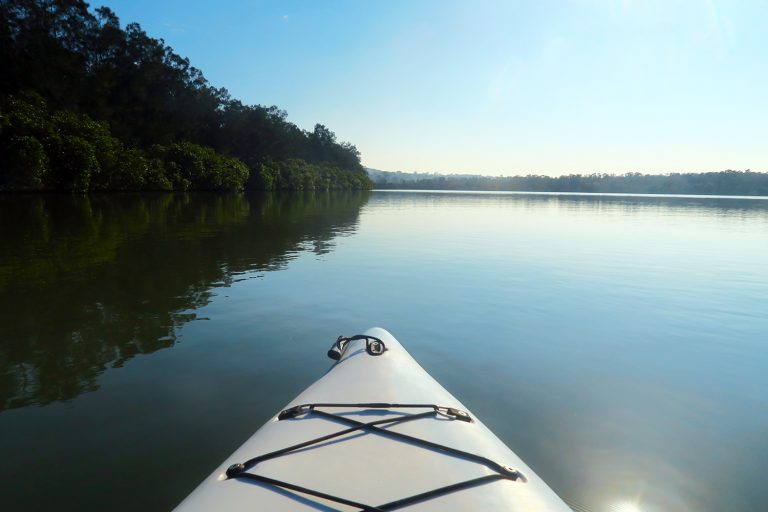10 Ways to Immediately Use Less Plastic When Travelling

In 2016 I made the decision to severely cut down on my waste. I particularly wanted to figure out how to use less plastic when travelling.
Over the course of twelve months, I worked on eliminating it from my life. I didn’t succeed 100% – I don’t actually think that this is currently possible in the world that we live in, for a few reasons. Yet, I learned a lot and did have many successes, ingraining new habits that still apply today.
I will admit I’ve slacked off a bit in the last year. I moved countries and then spent some time settling into my new city of Melbourne, Australia.
Yet, sustainability is a topic that I am still passionate about. Plastic waste in particular is choking the planet and it’s something that many of us can easily cut down on, if we just look at changing a few key habits – particularly when we’re travelling.
Here are some plastic pollution solutions you too can use when you’re on the road.

Avoid single use items by having your own “plastic-free kit”
Preparation is key to avoiding plastic – you’ll want to have on you things that you can use in a pinch, rather than falling back on single use disposable items such as plastic cutlery or bottles.
Then, you can essentially swap these items out for stuff that is reusable and therefore kinder on the environment.
As such, there are a handful of products that I try to always have on hand, to do my best to avoid crappy single use items.
These include a [easyazon_link identifier=”B01D8IPGXQ” locale=”US” tag=”birdgehls10-20″]KeepCup[/easyazon_link] (reusable coffee cup), [easyazon_link identifier=”B01LX7VOM1″ locale=”US” tag=”birdgehls10-20″]spork[/easyazon_link] and a canvas tote bag.
If I do get bogged down with something plastic, I try to repurpose them. Plastic containers can be used again and there are so many cool things you can do with plastic bottles.
Say no to straws
I detest straws and really don’t think you ever really need one, full stop.
Always ask to not have a straw provided, when you’re ordering a drink that may come with one. Sometimes they’re paper, which seems like a better choice, although I do worry about them being lined with plastic, so they’re probably best to avoid.
You can bring your own [easyazon_link identifier=”B00SKX8XAS” locale=”US” tag=”birdgehls10-20″]stainless steel straw[/easyazon_link] if you do prefer them or are worried about your lipstick or something. But they are largely a pointless item that do so much harm to the environment.

Eat out rather than having takeaway
I find that I produce far less plastic waste when I choose to eat out at a restaurant or café, rather than take the item back to to my accommodation.
This is because I’ll almost certainly be using the venue’s own plates and cutlery, which in most circumstances are reusable. Some places do give out plastic plates and the like, which is bananas (and not very Instagrammable, amirite?).
I think it’s far nicer to eat out than in, anyway. It’s true that sometimes you just want to shut yourself off from the world and enjoy your own space. Yet, it’s easiest to get the flavour of a place, when immersing yourself straight into it and if eating locally doesn’t provide that experience then I don’t know what does.
Make your own toiletries, or shop for plastic-free ones
My toiletries bag was always the cause for the most concern when trying to go plastic-free.
It took me a long time to get it to a point that I was satisfied with. I went to great lengths to get there, even going so far as attempting to wash my hair without shampoo for four months.
The first few things I did was swap out my plastic toothbrush and hair brush for a [easyazon_link identifier=”B009O3BCT2″ locale=”US” tag=”birdgehls10-20″]bamboo toothbrush[/easyazon_link] and [easyazon_link identifier=”B00MR0PPKG” locale=”US” tag=”birdgehls10-20″]comb[/easyazon_link]. I also purchased a [easyazon_link identifier=”B002A8JO1Q” locale=”US” tag=”birdgehls10-20″]resuable razor[/easyazon_link] for body hair.
Deodorant was tricky but I eventually found one I really liked – [easyazon_link identifier=”B01N32VJJK” locale=”US” tag=”birdgehls10-20″]Meow Meow Tweet’s[/easyazon_link] which come in biodegradable packaging.
I make my own lip balm out of shea butter, honey and beeswax and shop locally for essential oils, moisturisers, soaps and shampoo bars, to complete my toilette.

If you’re a lady, get a menstrual cup for your periods
Sanitary items are crap two fold – they are harmful to the environment and many countries (such as my own of Australia) place an extra tax on these items, rendering them extra expensive. Cheers for that.
It’s also a topic of conversation that is not had readily enough. Periods are just about the most natural thing for a lot of women (and the thing we dread the most), yet they’re shunned as being taboo.
I’ve met people who have had no idea that things like menstrual cups and reusable pads even exist and think that the proper way of disposing of sanitary items is flushing them down the toilet. I don’t even know how to mentally deal with that.
My [easyazon_link identifier=”B0054SD2BW” locale=”US” tag=”birdgehls10-20″]menstrual cup[/easyazon_link] has been a life-saver – I have been using for for over three years now and have saved a shit-tonne of money in the process.
This is a topic I’m super passionate about – you can read more about travelling without using plastic during your periods here, particularly if you’re interested in sticking two fingers up to the (tax)man.
Don’t forget that there are other options out there which eliminate the need to use any kind of sanitary item whatsoever.
Learn a few helpful phrases
Sometimes it is communication that gets in the way of travelling plastic free. People have no idea of what you’re asking for and will default to giving you a plastic bag, bottle, straw – whatever the situation may be.
I’ve put together a guide sheet with a few key phrases for plastic free travel in different languages and I’m always looking to expand upon it – if you have any to contribute, please email me at [email protected].
Do keep these phrases handy next time you’re travelling in a country where this language is largely spoken.

Take what you need with you
Our plastic purchases can add up simply because we travel whilst being inadequately prepared.
It’s taken awhile, but I’ve built up a pretty good packing list for green travelling. I try to never go on long-term travels without these items.
Only buy quality items
And continuing on from there, do your darnedest to invest in items which will last the test of time.
Buy quality luggage, camera gear, travel items and take good care of them, so you don’t have to constantly keep replacing them.

Invest in a filtered water bottle
I’ve been on the lookout for the perfect filtered water bottle for YEARS. I think I’ve finally found it.
The [easyazon_link identifier=”B01C6HAVVM” locale=”US” tag=”birdgehls10-20″]GRAYL Ultralight Water Purifier [/easyazon_link] is painfully easy to use.
It has an inbuilt filter and two separate sections. You simply fill the bottle with water and then push the top section down, so the water filters through into a second section you can drink from.
I recently took it with me to Thailand, drank from it constantly and didn’t get a tummy bug once. My stomach is sensitive AF, so this was a revolution.
I have a full post in the works about this bottle, coming atcha soon.

Be patient and understanding – to yourself and others
If you ask me, this is probably the best piece of advice for anyone starting a plastic-free journey.
When I first started trying to give the stuff up, I was constantly angry and frustrated. At others for their lack of comprehension but also at myself.
I am not perfect, because I’m a human being. I forget to pack things I need. Sometimes I’m lazy or tired and opt for convenience, rather than making the choice that will lead to less waste.
I largely feel like a wanker in referring to anything in this sense, but I do think it’s best to view the path to a sustainable life as a journey. If something doesn’t quite go to plan, step back and evaluate what went wrong, take the lesson and apply it going forward.
You may not succeed every time, but I think even a little bit of plastic avoided can go a long way in making our planet a nicer, cleaner place to live in.
More Information
If you want to read more about living sustainably, I highly advise perusing The Rogue Ginger, Treading My Own Path and Paris To Go for more ideas.
I also wrote a post listing some of my favourite green bloggers, selected due to their passion on sustainability, interest in giving back to the planet or love of backyard travel.
I shop for most of my stuff in Australia via Biome and when I lived in Europe, I frequented Sinplastico. However, I highly advise hunting around your own town or city for stores that stock plastic free alternatives and to only use online shops as a last resort.
You may also be interested in:
Things to Remember When You’re Almost 30.
How to Construct a DIY Worm Farm for Your House or Flat
10 Tips For Living Zero Waste in Big Cities
Responsible Travel Bloggers Worth Following
Go Plastic Free With a Zero Waste Travel Kit
Pin me baby, one more time.
This post may contain affiliate links. This means if you make a purchase through this post, I will receive a small commission in return. Thank you so much for supporting my war on plastic and starting your own!









Great stuff. May I add shop at local markets and avoid buying food items that are transported?
You certainly may! Good tip. 🙂
Great tips LC, it’s easy to fall back into bad habits when travelling and the take away containers is the big one for me, especially when you try to cut costs and eat at food halls.
Thanks Nina! Agreed, it’s good to have one on hand I think, especially if the meal is ginormous and you’re stuck with leftovers.